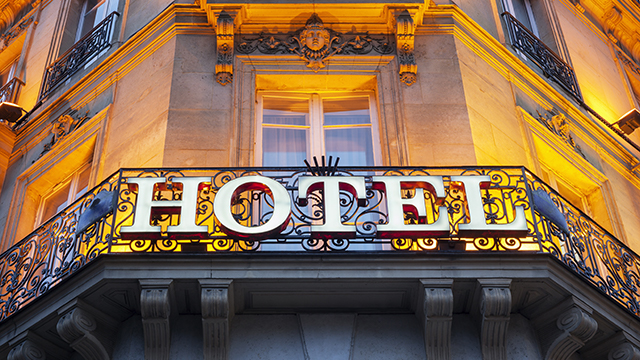Despite Struggles, the Hotel Industry is Preparing for a Renaissance
By Elizabeth Mueller | March 19, 2021
Pre-pandemic, while enjoying years of unprecedented, sustained growth in the hospitality sector and especially in the hotel and lodging industry, the top-of-mind question posed at hotel professional conferences had been “Where are we in the cycle?” That question will certainly elicit quite a different answer today. No one could have predicted that the floor would fall out from under the hotel industry, and yet here we are, rounding the corner on the one-year anniversary of the pandemic shutdown. How do we reflect upon these past 12 months and prepare for what is to come in the hotel and lodging industry when so much is still uncertain?
In March of 2020, world’s economies went from anticipating a few weeks of closure to an all-out halt. Business travel ceased, events were cancelled, and borders closed to leisure travelers. Fortunately, many hotel owners and operators have been able to survive through the help of government assisted programs such as the Coronavirus Aid, Relief, and Economic Security (CARES) Act, Paycheck Protection Program (PPP) loans, loan forbearances from lenders and cost-cutting and expense-saving measures. The ability to be creative and pivot the business model has also been key to weathering the storm, whether it be by contracting with FEMA to house the homeless or offering remote work from hotels to those needing an escape from working at home.
With increased optimism due to the rollout of the COVID-19 vaccines and easing of restrictions, all indicators point towards the return of travel. The question is when – and the answer is complicated. As of the beginning of March 2021, approximately 16% of the U.S. population has received at least one dose of the COVID-19 vaccine. The Center for Disease Control is projecting it will not be until September/October that 80 - 90% of the population is at least partially vaccinated, reaching the point of herd immunity. For that reason, the path forward for the hotel industry is likely to be a rollercoaster ride.
Leisure travel is expected to return first, followed by business travel, then the return of group and convention travel. During the pandemic and as we look ahead to recovery, location has had a significant impact on industry performance. At the end of 2020, industry professionals reported that domestic coastal and mountain destinations were faring better than their urban counterparts. Larger, convention heavy properties may not see a return to pre-2019 numbers until 2023/2024, but it is likely that outdoor activity locations will continue to see a rise in interest as vaccine confidence and quarantine fatigue grow, and ultimately travel resumes across all sectors.
There are a number of performance indicators used to measure hotel performance. Revenue per available room (RevPAR) is a metric that measures a property's ability to fill available rooms at an average rate. A RevPAR increase generally corresponds to improvement in occupancy rates. As of the first week of March 2021, U.S. weekly RevPAR, indexed to 2019, has begun the move out of depression and into recession territory.[1] This means that the return of the hotel and lodging industry may be underway on a micro-scale, in popular leisure destinations first, and will hopefully continue on a macro-scale as other types of travel resume. Hotel owners and operators are doing their part to help smooth the transition. Since the beginning of the pandemic, industry professionals have been hard at work developing new plans and adjusting operations to ensure that travelers feel safe upon arriving at their booked stay. For example—in many hotels, hoping to make guests feel more at ease with their decision to stay away from home, housekeeping has become a key focus, with this formerly behind-the-scenes function now becoming an integral and visual part of travel safety. Today’s accommodations include various brand and industry Safe Stay initiatives, touchless technologies, increased cleaning of public surfaces and other steps to reduce possible exposure during stays.
Investor confidence in the sector seems to suggest that the renaissance is coming. Even in New York City, undoubtedly one of the hardest hit areas for the hotel and lodging industry, headlines are reporting the openings of new and innovative luxury hotel properties. The city is set to welcome the Six Senses in West Chelsea, the Fifth Avenue Hotel, Aman New York, Margaritaville Resort Times Square, and the NYC flagship Virgin Hotel. Surprisingly, unlike during the financial crisis of 2009, though there have been some permanent hotel closures and bankruptcy filings because of the pandemic, the industry has not yet seen a significant uptick in distressed sales or deals on the market. Quite the opposite– with the support of government-assisted programs and lenders who still see value in hotel properties based on pre-pandemic operations, there is excess capital available for potential new deals. In addition, established operators such as Hyatt and Wyndham are still on course for the planned expansion of independent collection brands and the development of additional properties.
As we continue to see the easing of government-imposed closures and travel restrictions, the summer months will be a true indicator of the pace of recovery and the path forward. Though there are many unknowns, as we look towards the “new normal,” the ability to travel freely around the country and eventually the world is one we will celebrate and no longer take for granted. The hotel and lodging industry is well prepared to welcome back the travelers that keep the sector humming.
[1] STR U.S. Market Recovery Monitor https://str.com/data-insights-blog/us-market-recovery-monitor-week-ending-6-march
About Elizabeth Mueller
Elizabeth Mueller, CPA, is a Partner in the Hospitality Group at Marks Paneth LLP and has 20 years of public accounting and private industry experience. She specializes in providing audit, advisory and tax services to privately held entities that own and manage hospitality assets, including hotels, restaurants, limited service properties, high-end resorts and management companies. Ms. Mueller’s areas of expertise also include employee benefit plans, commercial and residential real estate, real estate investment trusts (REITs),... READ MORE +




